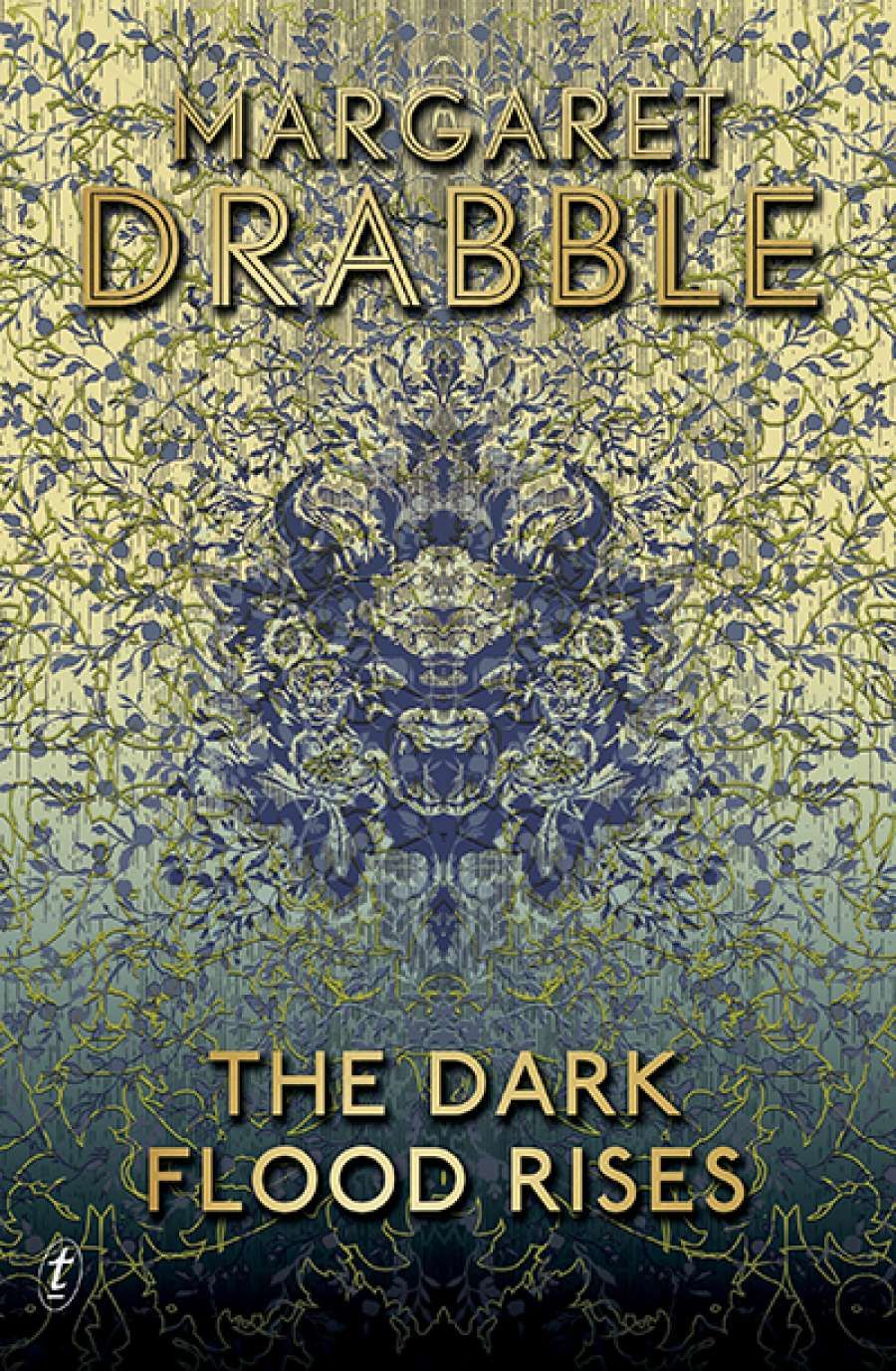
- Free Article: No
- Contents Category: Fiction
- Custom Article Title: Jane Sullivan reviews 'The Dark Flood Rises' by Margaret Drabble
- Custom Highlight Text:
I’ve been reading Margaret Drabble’s novels with great pleasure for most of my life, and we’ve all been getting on a bit: Drabble, me, her readers, her characters. So I suppose ...
- Book 1 Title: The Dark Flood Rises
- Book 1 Biblio: Text Publishing $29.99 pb, 325 pp, 9781925355307
Drabble’s having none of that. As one of her characters says, old age is a theme for heroism. She introduces us to an ensemble of souls who have all passed the threescore-and-ten mark, and gives us intertwining stories in a magisterial third-person voice about what they are up to. In some cases, they are not up to much: but there is still courage, and still a rich inner life. It helps that these are privileged English people, intelligent and highly educated, still in possession of their marbles (only one woman, in her nineties, has dementia), and still able to live in some comfort and style. They have had careers, sometimes distinguished ones. They have family and friends, and sometimes we hear from children and other younger characters.
We meet Francesca Stubbs, still at work as a consultant on housing for the elderly, still bustling around the country to inspections and conferences, still delivering meals to her ex-husband Claude, a retired surgeon who is almost bed-bound but seems content to lounge around listening to Callas, and indulging in mild lechery with his beautiful home help.
It was a stroke of inspiration to make Fran the main character, for while her friends and family are arty-farty or scholarly types given to musing on paintings, history, music, or poetry, Fran is resolutely down to earth; although she is a worrier, she takes pleasure in simple things. She is not much taken with Samuel Beckett’s Happy Days, in which Winnie speaks despite being buried up to her neck in sand. Fran chooses to live in a high-rise council flat that gives her a view of glorious cloudscapes, and nothing beats a boiled egg for breakfast at a Premier Inn.
Not that the arty-farty stuff goes to waste. Drabble is always a skilful weaver of metaphor, and her characters’ knowledge and taste allow her to play on a symphonic array of allusions and observations that various artists and thinkers have made, directly or indirectly, to ageing and death. Occasionally, these digressions become too elaborate or repetitive, but the reader is always drawn back to the central theme.
 Margaret Drabble (Wikimedia Commons)Places too have multiple meanings. The historian Bennett Carpenter is slowly drying out like a mummy with his longtime partner, Ivor Walters, in a beautiful house in the Canary Islands, the legendary Isles of the Blessed and also the sought-after retirement dream for British expats. But the earth quakes offshore, and back home the waters are spreading in the fens where Fran’s solitary daughter Poppy lives. You can’t get away from the dark flood.
Margaret Drabble (Wikimedia Commons)Places too have multiple meanings. The historian Bennett Carpenter is slowly drying out like a mummy with his longtime partner, Ivor Walters, in a beautiful house in the Canary Islands, the legendary Isles of the Blessed and also the sought-after retirement dream for British expats. But the earth quakes offshore, and back home the waters are spreading in the fens where Fran’s solitary daughter Poppy lives. You can’t get away from the dark flood.
It could be argued, though I wouldn’t do it, that Drabble is sanitising old age. Like Claude’s cat Cyrus, her claws are sheathed and heavily padded. Teresa is dying of cancer; we realise her pain is acute, but we don’t share the agony. We watch her enjoy her sandwiches and trips down memory lane with Fran. Teresa has taught herself to aspire to a humble and contrite heart, and she counts her comforts: a blanket, a mug of soup, a radio quiz, a book on her lap. There is great poignancy and truth in this seeming trivia.
Nothing much happens in this supremely wise novel, and yet everything happens. It’s a quiet epic. There is no clear answer to the question of how to summon the courage old age demands, let alone how to have a good death, or the pros and cons of euthanasia, or the unlikely prospect of an afterlife. But Drabble’s intricate mosaic of observation, meditation, and affectionate humour suggests that if there are answers, they lie in small things. Call no man happy until he dies, goes the old saying: but perhaps the odd moment of happiness can be enough.


Comments powered by CComment